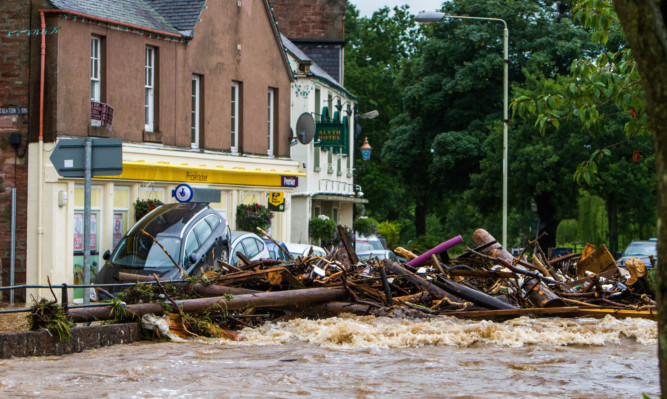A Scottish Government minister has ruled out the possibility that beavers may have played a part in the recent flooding in Alyth.
Aileen McLeod, minister for environment, has written to Murdo Fraser, MSP for Mid Scotland and Fife, to state she understands initial findings by the Scottish Environment Protection Agency (Sepa) are that there is “no evidence” beaver activity significantly contributed to the flooding.
This followed an announcement from the Scottish Association for Country Sports (SACS), which claimed some members had said debris washed through the east Perthshire town showed signs of being chewed by beavers.
Mr Fraser had asked Ms McLeod to ask for a study to be carried out to examine the causes of the flood that hit Alyth on July 17 and led to 23 council properties being damaged and two bridges washed away.
Local residents rallied around after the flood, with 150 tonnes of waste material being cleared away, and Perth and Kinross Council is in the process of installing various measures to aid the town.
Ms McLeod suggested that beavers were not to blame.
In her letter to Mr Fraser, she said: “I realise there has been speculation about whether the actions of beavers in the area contributed to the flooding event. Sepa is currently investigating the causes of the flooding, in collaboration with Scottish Natural Heritage and Perth and Kinross Council.
“However, I understand that Sepa’s initial findings are that there is no evidence that beaver activity significantly contributed to the flooding.
“The investigation will also look at any impact land management practices may have had on the severity of the incident.”
Paul Ramsay, of the Bamff estate, where some beavers live, previously rejected the claim the animals were to blame for the flooding.
A Scottish Government spokesperson said: “Understanding the causes and consequences of flooding incidents has an important place in Scotland’s work to reduce flood risk. As such, we look forward to seeing the conclusions from Sepa’s assessment.”
